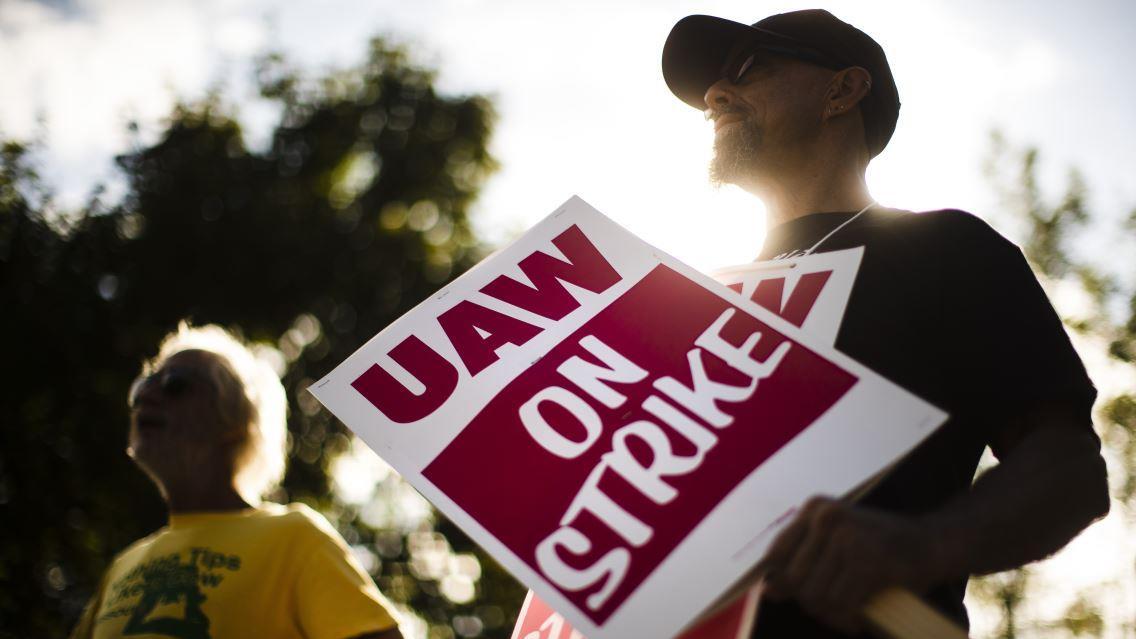General Motors strike non-event for US manufacturing
The U.S. manufacturing sector is likely to have avoided a meaningful slowdown related to the United Auto Workers strike at General Motors which is nearly over.
| Ticker | Security | Last | Change | Change % |
|---|---|---|---|---|
| GM | GENERAL MOTORS CO. | 81.47 | -2.20 | -2.63% |
GM and the UAW announced on Wednesday that they had reached a tentative agreement that would end the month-long strike. Local union leaders will vote on the deal on Thursday, then the nearly 50,000 workers will vote. Once the tentative agreement is approved, workers will return to the production line even though the ratification won’t be complete.
GET FOX BUSINESS ON THE GO BY CLICKING HERE
Tom Derry, CEO of the Institute for Supply Chain Management, told FOX Business that because of how the data is collected and slack in the supply chain, it’s unlikely the strike will have a big impact on the manufacturing sector, which accounts for 10 percent of the U.S. economy.
“We're typically collecting the data in the last 10 days of the month,” Derry told FOX Business. “So if the strike is resolved in the next few days, there's a fighting chance that the new orders number and similar indexes around production and employment and inventories wouldn't have been materially impacted in a few short weeks.”
Derry's comments were backed up by excerpts from the Fed’s Beige Book, which was released on Wednesday afternoon.
“Contacts said that the strike at GM was slowly depleting inventories of GM vehicles, but that inventories at GM suppliers were expected to keep growing until the strike ends,” the Federal Reserve Bank of Chicago said.
Fears of a manufacturing recession have been on the rise after the ISM’s survey showed the sector contracted in August and September, the first such drawdowns in three years. A third straight month of contraction would increase concerns of a manufacturing recession and could lead to an even deeper slowdown.
CLICK HERE TO READ MORE ON FOX BUSINESS
“Psychology is really important,” Derry said. "The economy kind of runs on confidence levels and expectations, and if the numbers come in in a way that sort of gave people pause or make them less confident about the future the first reaction of those companies is to tap the brakes, and that could be self-fulfilling.




















